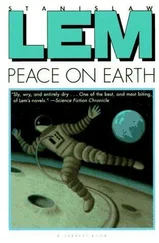There are too many historical treatises even to mention. The four-volume work of the historian of science William Angers, 749 Days: A Chronicle, is monumental. It amazed me with its meticulousness; Angers had got hold of all the former workers of the Project and done a compilation of their views. But I did not read his opus to the end — that seemed to me as impossible as reading a telephone book.
In a separate category are books not factual but interpretive, ranging from the philosophical and theological even to the psychiatric. The reading of such publications never fails to weary and annoy me. It is no coincidence, I am sure, that those who have the most to say about the Project are the ones who have had no direct contact with it.
Which is similar to the attitude physicists have regarding gravitation or electrons — as opposed to that of the “well-informed” who read popular science. The “well-informed” think they know something about matters that the experts are reluctant even to speak of. Information at second hand always gives an impression of tidiness, in contrast with the data at the scientist’s disposal, full of gaps and uncertainties. The writers on HMV who come under the interpretive heading as a rule crammed the information they acquired into the corsets of their convictions; what did not fit they lopped off without ceremony or hesitation. A few such books one can at least admire for the authors’ inventiveness. But this type imperceptibly turns into a characteristic form that one might term the graphomania of the Project. Science, from its very beginning, has been surrounded by a halo of pseudo science, which rises like steam from various half-educated heads; it is not surprising, then, that HMV, as a phenomenon completely unprecedented, evoked so violent a ferment among addled minds, a ferment crowned by the appearance of a series of religious sects.
The amount of information that is necessary for even a general grasp of the questions dealt with in the Project exceeds, to tell the truth, the brain capacity of a single individual. But ignorance, while it checks the enthusiasm of the sensible, in no way restrains the fools; thus in the ocean of published papers that His Master’s Voice has called into existence, a man can find whatever suits him, as long as he is not overly concerned about the truth. And even the most venerable personages have tried their hand at literature devoted to the Project. The New Revelation, by the respected Patrick Gordiner, is at least logical and lucid, which I cannot say of The Epistle of the Antichrist by Father Bernard Pignani. The pious priest reduces HMV to demonology (using for the purpose the nihil obstat of his church superiors), and its concluding failure he attributes to Divine Intervention. This resulted, I guess, from Lord of the Flies, that name jokingly made up at the Project, which Father Pignani took seriously, acting like a child who thinks the names of the stars and planets are written on them, and that the astronomers read these off through their telescopes.
To say nothing of the swarm of sensational versions — which are like those frozen meals one heats and serves, practically pre-chewed, which look a great deal better under the cellophane than they taste. The ingredients are seasoned with an ever-novel but always fabulously colored sauce. Look used the spy-political to season its series of articles (putting into my mouth words I never said); The New Yorker served up a dish more refined, adding certain essences of philosophy; and, again, in HMV: Between the Lines, Dr. Shapiro provided a psychoanalytic interpretation, from which I learned that the people of the Project were driven by a libido made unnatural by the projections of the newest — cosmic — mythology of sex. Dr. Shapiro is also in possession of precise information concerning the sex life of cosmic civilizations.
I cannot for the life of me understand why, while people without driver’s licenses are not allowed on public roads, in bookstores one can find any number of books by persons without decency — let alone knowledge. The inflation of the printed word has been caused, no doubt, by the exponential increase in the number of those writing, but in equal degree by editorial policies. In the childhood of our civilization only select, well-educated individuals were able to read and write, and much the same criterion held after the invention of printing; and even if the works of imbeciles were published (which, I suppose, is impossible to avoid completely), their total number was not astronomical, as it is today. Today, in the flood of garbage, valuable publications must go under, because it is easier to find one worthwhile book among ten worthless than a thousand among a million. Moreover, the phenomenon of pseudo plagiarism becomes inevitable — the unintentional repetition of the ideas of others who are unknown.
I can have no certainty that what I write is not similar to what already has been written. This is one hazard of an age of population explosion. If I have decided to present my reminiscences in connection with the work of the Project, it is because nothing I have read on the subject so far has satisfied me. I do not promise to “tell the truth and nothing but the truth.” Had our labor been crowned with success, that might have been possible, but success at the same time would have made such an undertaking unnecessary, for then the concluding truth would have eclipsed the circumstances of its attainment; it would have become a material fact nailed in the center of our civilization. But the failure somehow has cast all our efforts back to their sources. Since we do not understand the mystery, nothing really remains to us but those circumstances that were to have been the scaffolding — and not the edifice itself — or the process of translating — and not the content of the work. And yet the former turned out to be all that we returned with from our quest for the Golden Fleece of the Stars. It is here that I part company as well with the versions that I called objective, beginning with the Baloyne Report, because the word “failure” does not appear in them. Did we not leave the Project incomparably richer than when we entered it? New chapters opened up in the physics of colloids, in the physics of strong interactions, in neutrino astronomy, in nucleonics, biology, and, above all, the new knowledge of the Universe — this represents but the first interest that has accrued to us from the informational principal, which, according to the experts, promises huge profits to come.
No doubt. But there are benefits and there are benefits. Ants that encounter in their path a dead philosopher may make good use of him. If the example is shocking, I intend it to be. Literature, from the very beginning, has had a single enemy, and that is the restriction of the expressed idea. It turns out, however, that freedom of expression sometimes presents a greater threat to an idea, because forbidden thoughts may circulate in secret, but what can be done when an important fact is lost in a flood of impostors, and the voice of truth becomes drowned out in an ungodly din? When that voice, though freely resounding, cannot be heard, because the technologies of information have led to a situation in which one can receive best the message of him who shouts the loudest, even when the most falsely?
I had not a little to say about the Project, but hesitated a long time before sitting down at my desk, aware that I would be adding to what already was a swollen sea of paper. I had assumed that someone more adept with words would perform the task for me; but after years passed I realized that I could not remain silent. The most important works dealing with His Master’s Voice, the objective versions, with the Congressional at the head, admit that we did not learn everything; but the amount of space devoted to the achievements, with occasional footnote mentions of what remained unknown — those very proportions suggested that we had mastered the Labyrinth, with the exception of a few corridors — dead ends, no doubt, probably buried in rubble — whereas in fact we did not get as far as the entrance. Doomed forever to conjecture, having chipped a few flecks from the lock that sealed the gate, we delighted in the glitter that gilded our fingertips. But of what was locked we know nothing. And yet, surely, one of the first duties of a scientist is to determine the extent not of the acquired knowledge, for that knowledge will explain itself, but, rather, of the ignorance, which is the invisible Atlas beneath that knowledge.
Читать дальше












